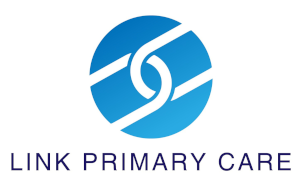Understanding the Health Benefits of Direct Primary Care in the Workplace
Millennials are reshaping traditional notions of careers and seeking more than just a paycheck. This generation craves purpose, fulfillment, and a healthy work-life balance in their ideal jobs. The millennial generation, born between 1981 and 1996, is characterized by their tech-savviness, entrepreneurial spirit, and desire for meaningful work experiences. As they flood the job market, employers must understand and adapt to these preferences to attract and retain top talent.
The personalized care and convenience provided through direct primary care can contribute to employee satisfaction and loyalty. It can also help reduce turnover rates and help employers retain top talent. In this article, Link Primary Care will take a look at the millennial mindset and demonstrate how direct primary care provides a competitive edge to employers.
The Millennial Mindset: Purpose and Work-Life Balance
Various studies have shown that millennials prioritize purpose over profit, seeking roles that align with their values and contribute to the greater good. They are drawn to organizations that prioritize social responsibility, sustainability, and making a positive impact on society. For millennials, a job is more than just a means to an end; it’s a platform for personal growth, creativity, and social change.
Along with purpose, millennials value work-life balance more than any previous generation. They prioritize flexibility, autonomy, and the ability to integrate work with other aspects of life, such as family, hobbies, and personal development. They reject the traditional notion of sacrificing personal well-being for professional success, recognizing the importance of holistic health and overall happiness. This generation is spearheading the movement to break the stigma of a 9 to 5 workplace, and that is just the beginning of their agenda.
The Health Benefits of Work-Life Balance and Purpose
The pursuit of purpose and work-life balance isn’t just a matter of personal preference; it’s also linked to significant health benefits. Research indicates that individuals who find meaning and fulfillment in their work are more likely to experience lower levels of stress, anxiety, and depression. These individuals also exhibit higher levels of job satisfaction and overall well-being, leading to improved physical and mental health outcomes.
Similarly, maintaining a healthy work-life balance is essential for preventing burnout and promoting overall health. Chronic stress resulting from long work hours, excessive workload, and lack of time for self-care can lead to a host of health issues, including cardiovascular problems, weakened immune systems, and mental health disorders. By prioritizing work-life balance, individuals can reduce stress levels, improve sleep quality, and enhance their overall quality of life.
Employer’s Role in Supporting Purpose and Work-Life Balance
Employers play a crucial role in meeting the needs and preferences of millennial employees. To attract and retain top talent, organizations must prioritize purpose-driven initiatives, foster a supportive work culture, and offer flexible work arrangements. Aligning organizational values with those of their employees allows companies to create a sense of shared purpose and belonging, driving employee engagement and satisfaction.
Furthermore, employers can support work-life balance by implementing policies and practices that prioritize employee well-being. This includes offering flexible work hours, remote work options, and paid time off. By recognizing the importance of work-life integration, organizations can empower employees to manage their time effectively and achieve a healthy balance between work and personal life.
Direct Primary Care: A Solution for Employee Health and Wellness
In addition to promoting purpose and work-life balance, employers can enhance employee health and wellness by offering direct primary care (DPC) as part of their benefits package. DPC is a healthcare model that provides comprehensive primary care services to patients for a flat monthly fee, without the involvement of insurance companies.
Improved access to healthcare services is one of the key benefits of DPC. By offering direct access to primary care providers, employees can receive timely medical attention, preventive care, and chronic disease management without the hassle of navigating traditional insurance networks. This promotes early detection of health issues, reduces unnecessary emergency room visits, and fosters a proactive approach to wellness.
DPC emphasizes the importance of the patient-provider relationship, allowing for longer appointment times, personalized care plans, and continuity of care at times that are most convenient to the patient. By working together, healthcare providers can address not only physical health concerns but also mental health and lifestyle factors. This collaborative approach allows for the implementation of preventive measures, fostering a holistic approach to healthcare.
The Employer Benefits of Offering Direct Primary Care
Employers benefit significantly from offering DPC to their employees. By investing in proactive healthcare solutions, organizations can reduce healthcare costs, improve productivity, and enhance employee satisfaction and retention. DPC models typically result in lower healthcare spending due to reduced hospitalizations, fewer specialist referrals, and better management of chronic conditions.
DPC can also help employers differentiate themselves in the competitive job market and attract top talent. Offering comprehensive healthcare benefits, including DPC, sends a clear message that the organization prioritizes employee well-being and is committed to providing high-quality healthcare services.
Link Primary Care: Setting Employers Apart from the Competition
Millennials are driving a shift in workplace dynamics, prioritizing purpose and work-life balance in their ideal jobs. Employers must recognize and adapt to these preferences to attract and retain top talent in today’s competitive job market. By promoting purpose-driven initiatives, fostering a supportive work culture, and offering benefits such as direct primary care, organizations can create environments that prioritize employee well-being, health, and happiness.
In doing so, they not only meet the needs of their employees but also reap the rewards of a more engaged, productive, and loyal workforce. Link Primary Care believes that your people are your most valuable asset. Knowing the value of employees, Link works with employers to help set them apart from the competition by offering the best quality healthcare at a time that is convenient for the patient.
If you value your employees and want to be set apart from other employers, call our office today to set up a free consultation and benefits review.

